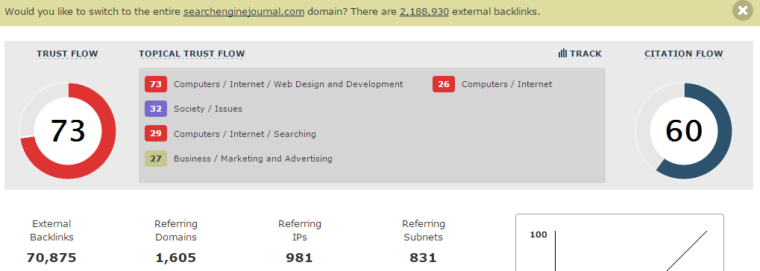We know Google has officially shut down toolbar PageRank. The PageRank algorithm, written by Larry Page and Sergey Brin, is still part of Google’s core algorithm, but you’d think the world was ending with the way SEOs are scrambling without toolbar PageRank. SEOs are searching for a replacement and my question to them is, why?
The last update to the toolbar PageRank was in December 2013 and even then it was a mistake. PageRank was never even added to Chrome, Google’s own browser. Google already removed PageRank from Webmaster Tools back in 2009. Even prior to that, in 2008, Udi Manber, Google’s VP of Engineering at the time, wrote:
The most famous part of our ranking algorithm is PageRank, an algorithm developed by Larry Page and Sergey Brin, who founded Google. PageRank is still in use today, but it is now a part of a much larger system.
With Google becoming more and more complex, it’s safe to assume you can never rely on just one metric. Other parts of this larger system are likely to include signals related to brands, topical relevance, location of links on a page, credibility, topical coverage, context, searcher intent, and more. Several of these items are covered in updated patents such as this one.
With all of this evidence, and even Google telling us not to focus on PageRank, why are SEOs so obsessed? Simply, the idea of PageRank was easy to show as a metric to businesses and became ingrained in the minds of business owners. Even though PageRank could be spoofed and manipulated, and even though spam could easily have a high PageRank without being quality or relevant, the metric took hold because it was an easy, simple rank of zero through 10 that could be improved.
PageRank has been a common metric used in the buying and selling of domains and was one of the most used metrics in the buying and selling of links. I’ve personally received a few dozen emails trying to sell me high PR links since Google killed off toolbar PageRank, which amuses me greatly.
What are PageRank Alternatives?
While Moz is known more for Domain Authority and Page Authority, they also have MozTrust and MozRank with the latter being similar to PageRank. Moz doesn’t prominently feature MozRank because it’s likely not the most accurate measure of the strength of a website.

Ahrefs used to have AR but has replaced this with Domain Rating and URL Rating metrics.

Majestic used to have ACRank but has replaced this with Trust Flow, Citation Flow, and even Topical Trust Flow metrics.

I want you to notice a common trend here. Even the companies that had measures similar to PageRank don’t make the numbers prominent or have phased them out in favor of better overall metrics. Each of these companies have their own crawlers and limitations (see differences, for instance, in referring domain). They likely use metrics for calculations that are similar to, but not the same as, those Google uses.
You can always use one or more of the metrics from these companies, just know that you don’t have a complete picture of the landscape. The metrics need to be used as a guide, not as gospel.
Stop Trying to Replace PageRank
A better metric to look at—without looking at a ton of different metrics—to judge the authority of a website might be overall site traffic. There are many tools that can do this including, Alexa, Compete, Quantcast, SimilarWeb, SEMrush, and Ahrefs. You’ll find a wide variety of numbers here as well, with SEJ showing everything from 54.4K visitors a month on SEMrush to 1.4M visitors a month on SimilarWeb.
I spot checked a few sites I have access to and, in most cases, Ahrefs seems to be the most accurate. However, this wasn’t the most well-structured test so I encourage you to check your own website. For SEJ, Ahrefs shows 125K visitors a month from organic. I would say again, take each with a grain of salt and maybe use them to compare yourself vs. competitors on each of the platforms while knowing the data is not 100% accurate.
In Conclusion
Consider PageRank only one part of the bigger picture and start looking at other signals. If you are going to do a comparison using existing metrics, then compare apples to apples. Use the metrics as a guide but not an absolute truth. Use them to inform, but not make, your decisions.
Image Credits
Featured Image: rassco/Shutterstock.com
All screenshots by Patrick Stox. Taken May 2016.





